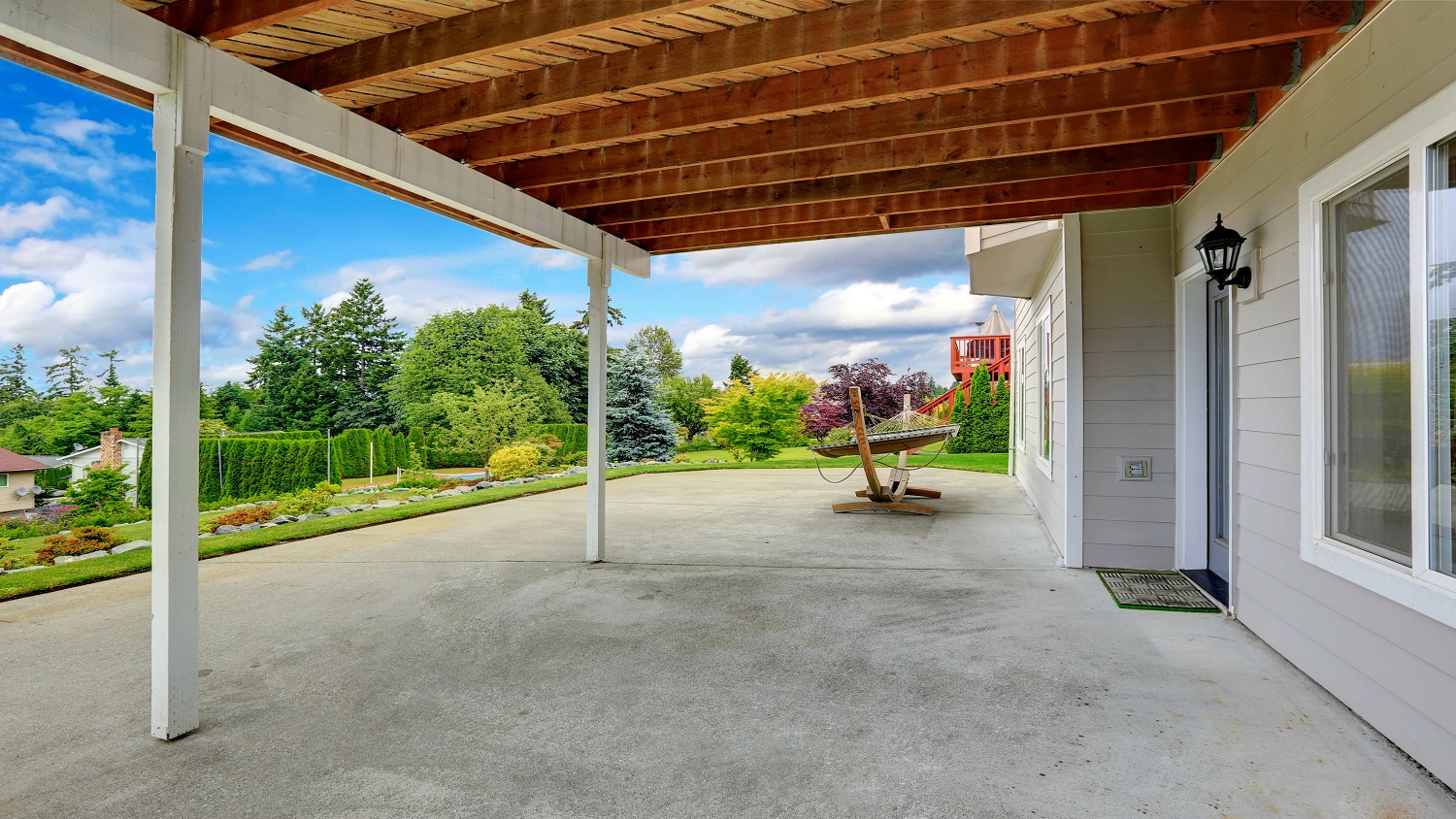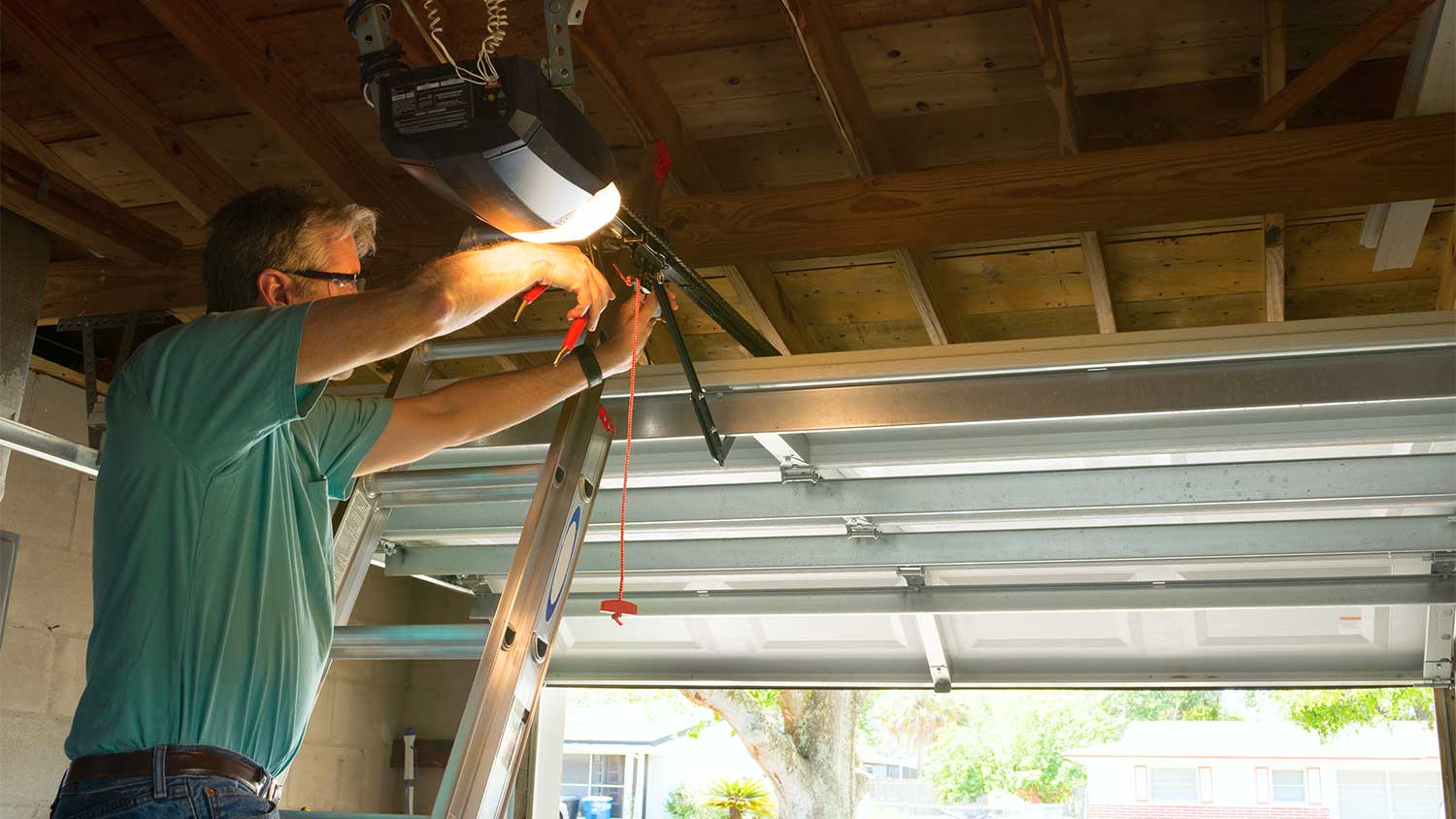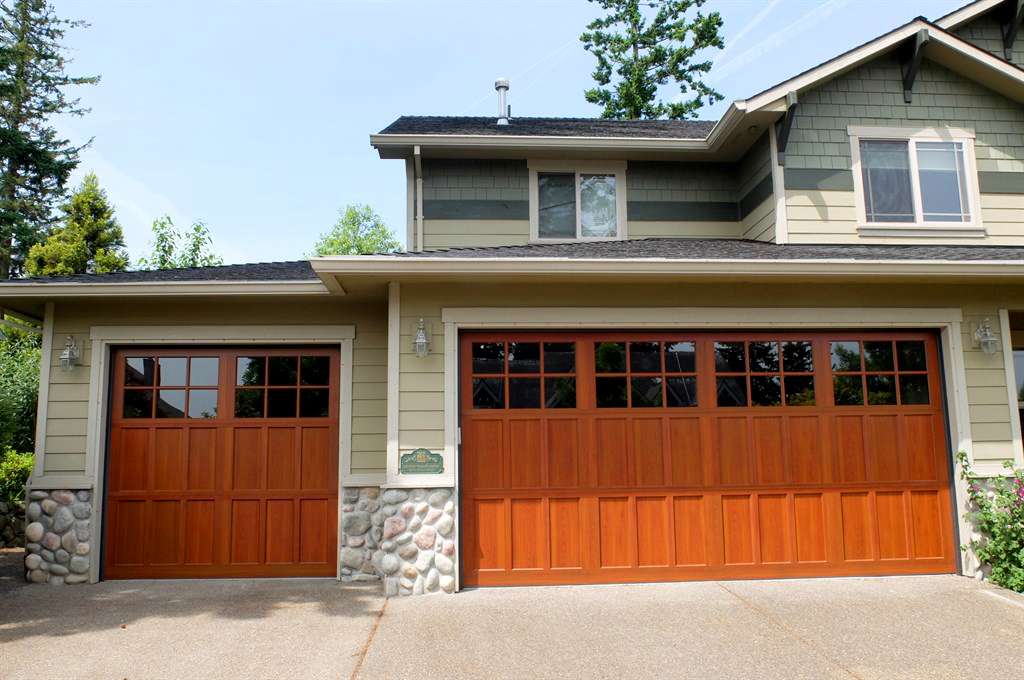
Need to replace your garage door? Here’s how much it costs, what factors affect cost, and what to expect.
An epoxy floor costs an average of $2,516


Average epoxy flooring costs range from $1,608 and $3,424, with potential highs of $5,765.
Garage size, site preparation, and resin type are key cost factors.
Epoxy floors offer durability, chemical resistance, and a clean appearance.
Timely maintenance and small repairs help avoid bigger future costs.
Hiring a professional to apply epoxy ensures a smooth finish and proper floor prep.
This article was updated using automation technology and thoroughly reviewed for accuracy by HomeAdvisor Editor Ryan Noonan.
Epoxy flooring costs range between $1,608 and $3,424 on average, with most paying an average of $2,516. The total price depends on the size of your garage floor, the required prep work, labor fees, and add-ons.
Contractors charge an average of $50 to $150 per hour to install epoxy flooring. There are three main types of epoxy resin: water-based, solvent-based, and solid. Each varies in price and durability. Budget carefully and hire a qualified pro to avoid unexpected costs.
Garage size, site preparation, materials, labor, and add-ons all influence your total epoxy flooring cost.
Floor size is the primary factor driving the overall cost of epoxy flooring. The larger the square footage, the more materials and labor you’ll require. Epoxy flooring for a one-car garage can cost as little as $750, while a three-car garage may cost up to $9,000.
| Garage Size | Average Sq. Ft. | Average Cost Range |
|---|---|---|
| One-car | 250 | $750–$3,000 |
| Two-car | 500 | $1,500–$6,000 |
| Three-car | 750 | $2,250–$9,000 |
Repair any cracks, chips, or crumbling concrete before applying epoxy. Depending on the extent of the damage, patching up older floors with cracks or chips costs $25 to $250 for labor and materials.
If cracks in your concrete indicate structural problems, foundation repair costs $2,150 to $7,730 or more.
Water-based epoxy resin costs between $2 and $5 per square foot, while solvent-based and solid epoxy are more expensive per square foot. Water-based epoxy is less expensive than solid or solvent epoxy.
While water-based epoxy costs $30 to $50 per gallon, solvent-based epoxy costs $40 to $55 per gallon. Solid epoxy is the most expensive type, costing approximately $45 to $150 per gallon.
Concrete resurfacing costs $1,000 to $5,000, depending on the size of your space. Some contractors may also charge a minimum fee of $500 to $1,000.
Labor costs between 33% and 60% of the total cost of epoxy floors, or $1 to $7 per square foot. Epoxy floor contractors charge $50 to $150 per hour, and most companies send two people to complete the job to speed up the process. You’ll pay a bit extra if your flooring is more challenging to access.
Commercial-grade coatings cost more than residential-grade coatings because these materials withstand more foot traffic and heavier vehicles. If you use your driveway or garage to house a tractor, RV, trailer, or dual-axle truck, consider investing in a higher-quality sealant to save money in the long run. These high-grade epoxy coatings add 20% to 30% to your total cost.
Prep work comes first. Clear the garage completely, including shelves and counters, before the crew arrives. If you don’t have space in your house or shed to store your items, you may need to hire a moving company and rent a short-term storage unit during installation.
Most epoxy coating products require acid washing, etching, power washing, or another preparation method before installation. This helps create a stable bond between the epoxy coating and the concrete floor. You’ll pay $50 to $100 for these prep services, but many flooring pros include these tasks in the job's overall cost.
After the epoxy cures, paint or seal the surface to boost durability and give it a finished look. Sealing your surface with high-performance urethane costs $2 to $5 per square foot, and painting the concrete costs $1.50 to $3 per square foot.
These cost ranges are for materials only. Labor is an additional fee, at $50 to $150 per hour. Extra sealing is always recommended, but you can paint at your own discretion.
Beyond protection, epoxy can change the look of a garage, basement, kitchen, or patio. Decorative options raise the overall price.
For example:
Rock and pebble epoxy costs $100 per gallon, excluding the cost of pebbles, stones, decorative rock, and labor for installation. This option mimics the appearance of natural stone while retaining the easy-care surface of epoxy.
Adding decorative flakes to clear or colored epoxy is another aesthetic option, with a single-pound bag covering up to 250 square feet and costing $0.04 per square foot.
Epoxy paint costs vary by color, with neutral colors costing less than their brighter counterparts. However, neutral colors work better with garage or driveway floors, while brighter colors are best for kitchens and patios.
Commercial and industrial applications require a 100% solid coating, which means the price will be higher, at $12 or more per square foot. Depending on the floor's square footage, you may save money by buying in bulk. Some contractors also offer discounts on larger projects.
The type of epoxy resin you use can impact the overall cost. Water-based epoxy is the most affordable but less durable. Solid epoxy is on the other end of the spectrum, but is highly resistant.
| Epoxy Type | Average Cost per Gallon |
|---|---|
| Water-based | $30–$50 |
| Solvent-based | $40–$55 |
| Solid | $45–$150 |
Water-based epoxy is the most cost-effective option, ranging in price from $30 to $50 per gallon. It is easy to apply, but thinner and less durable than the other options on this list.
Water-based epoxy withstands minor scratches but cannot withstand more impactful usage, such as heavy blows and chemical exposure. Flooring pros recommend replacing water-based epoxy every three to five years.
This mid-grade epoxy costs between $40 and $55 per gallon. Solvent-based epoxy is slightly stronger than water epoxy and is easy to install. However, installation releases volatile organic compounds (VOCs) that are dangerous to breathe, so appropriate safety gear is required.
Solid epoxy is the strongest and most expensive type, at $45 to $150 per gallon. This pure solid epoxy resists everything, from heavy scratches to chemical spills. However, installation can be difficult, so it's always best to hire a professional local epoxy flooring installer. Solid epoxy is the best, most durable option, but it doesn’t work well in high-moisture environments.
Epoxy floors don’t raise a home’s formal appraisal value, but the clean, finished surface can make a property more attractive to buyers. In some markets, agents report a potential bump of up to $8 per square foot. The coating resists stains, cracks, and wear, so new owners are less likely to face immediate repairs.
The cost of epoxy flooring can add up depending on the size of your garage and the resin you choose. Use the following tips to keep your project as budget-friendly as possible:
Compare quotes from multiple epoxy flooring contractors to find the most cost-effective option.
Schedule installation during the off-season to find reduced labor rates.
Opt for a water-based epoxy resin to reduce the cost of materials.
Bundle multiple projects to make the most of labor fees.
No place is more important than your home, which is why HomeAdvisor connects homeowners with local pros to transform their houses into homes they love. To help homeowners prepare for their next project, HomeAdvisor provides readers with accurate cost data and follows strict editorial guidelines. We surveyed thousands of real customers about their project costs to develop the pricing data you see, so you can make the best decisions for you and your home. We pair this data with research from reputable sources, including the U.S. Bureau of Labor Statistics, academic journals, market studies, and interviews with industry experts—all to ensure our prices reflect real-world projects.
From average costs to expert advice, get all the answers you need to get your job done.

Need to replace your garage door? Here’s how much it costs, what factors affect cost, and what to expect.

How much does it cost to build a garage? Explore cost factors, budgeting tips, and how a garage adds to your home’s value with our detailed cost guide.

Wondering who seals concrete? Learn who to hire, when DIY makes sense, and how pros seal driveways and garage floors—start your search now

Wondering who to hire for garage door repair or installation? See when to call a garage door installer or technician and what to ask.

Discover who to hire to build a garage. Learn whether to hire a general contractor or garage builder, what to expect, and how much it costs.

Keep your home safe and secure with these garage door repair and maintenance tips.